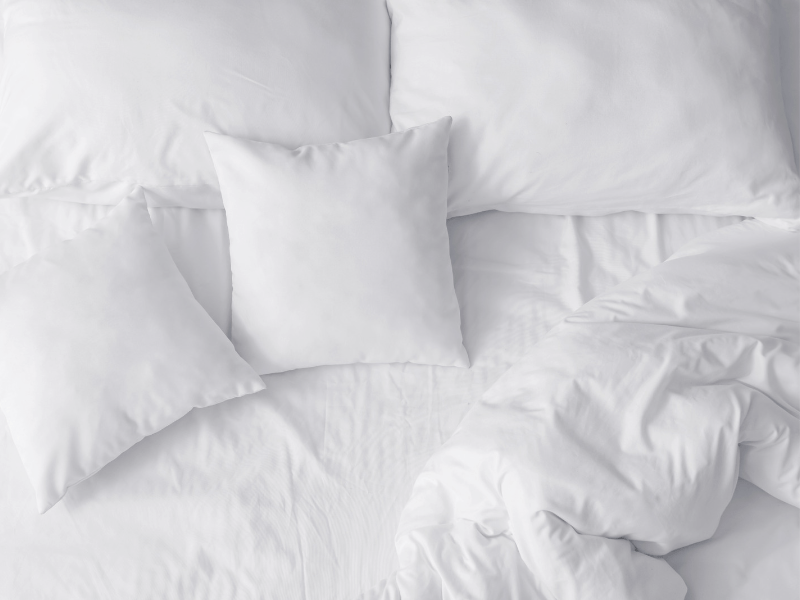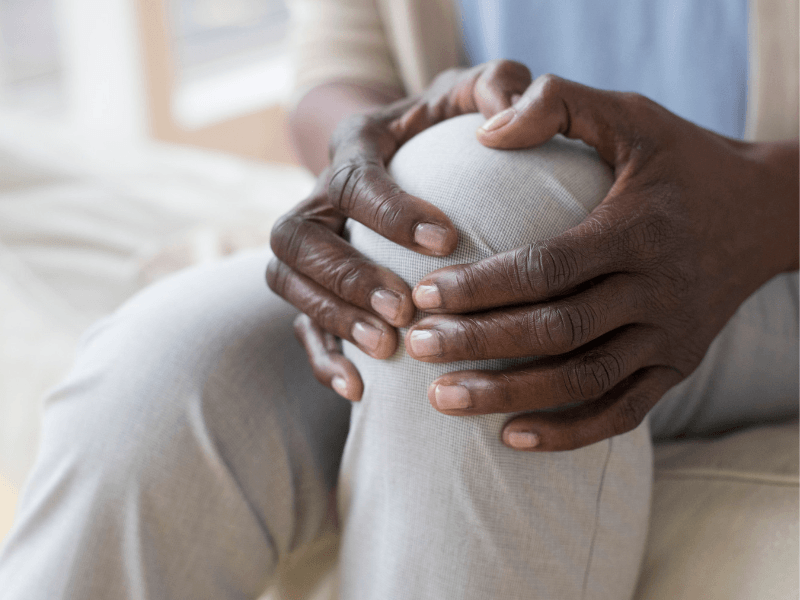Let's face it, a good night's sleep is often the difference between feeling energized and productive or dragging through the day. The abundance of mattresses available these days means that finding the perfect one to offer the perfect night's rest can feel daunting. You may ask yourself, "Is a soft mattress bad for your back? or is a number bed alternative better?' In this blog post, we'll break it down for you and weigh the pros and cons so that you can make an informed decision when shopping for the right mattress. We'll also talk about what constitutes a "soft" mattress, and explain why back support is so important. So, if you're concerned about the link between back pain and mattress types, keep reading to learn more!
Quick Overview of Key Question
It is generally believed that a medium firm mattress offers the best support and comfort for your neck and spine alignment. However, it must be noted that “medium-firm” is a subjective term and hard to define. If a softer mattress suits you and feels more comfortable, then a softer mattress can be fine as long as the mattress still provides adequate support and comfort. It is really up to you!
What Type of Mattress is Best for Back Health?
When choosing a mattress for optimal back health, it is important to consider a few factors. These include the level of firmness and the type of material.
Hybrid mattresses balance comfort and support by combining layers of foam, memory foam, air, springs, and/or latex. The added cushioning on a hybrid mattress can ease pressure points and help maintain good posture throughout the night. It is also important to look at the features of a mattress, such as gel-infused foams that are designed to help regulate temperature during sleep.
At the same time, some people may prefer sleeping on a soft mattress for their comfort. While some soft mattresses lack support and may cause further discomfort, they can sometimes provide enough cushioning to make up for the lack of support in other areas. It all depends upon how they are constructed. Additionally, softer mattresses often provide more contouring to fit one's body shape.
For those who cannot decide which type of mattress they prefer, it is best to test out both firm and soft mattresses to see which better suits their needs. Choosing to purchase a mattress from a company with a generous at-home, risk-free trial is often a good choice because you will be able to sleep on the mattress for at least a few weeks with the option to return if it does not suit you. It takes time for your body to adapt to any new mattress, and it is impossible to determine true support while testing a mattress in-store. The best way to try a mattress is to sleep on it. Shop with a company with an easy return policy and great risk-free trial! Not sure about how easy returns are? Check the reviews!
Considering these variables in terms of comfort and back health can help individuals find the perfect mattress for their bodies and lifestyle needs.
Soft Mattresses: Benefits and Downsides
Soft mattresses generally provide the user with a more comfortable sleep experience than firmer mattresses. The soft surface of the mattress can contour to the body and relieve pressure points on areas such as the hips, lower back and shoulders. Some studies have found that sleeping on soft mattresses can even help people with certain medical conditions, such as fibromyalgia or arthritis, as it helps reduce their pain while they sleep.
At the same time, however, softer mattresses don’t offer the same amount of support and stability as firmer versions. People who need extra support for their spinal alignment may find that a softer mattress doesn’t properly support their lower back and neck during sleep. It is a truly individualized decision.
Another downside to sleeping on a soft mattress is that it tends to wear out quicker than firmer ones. Soft mattresses usually come with shorter warranties than other types of mattresses due to the fact that they are much less durable and don’t last as long. This will greatly depend upon the materials used in the mattress as well as the overall construction, however.
When deciding whether or not a soft mattress is good for your back, there are several factors to consider. Weighing the pros and cons carefully will help you determine if this type of mattress is right for you. To dive even deeper into this topic, we can explore all of the potential pros and cons of soft mattresses in the next section.
Pros and Cons of Soft Mattresses
When it comes to mattress shopping, many people tend to go for soft mattresses due to their comfort and accommodating features. When trying out a mattress in a mattress store, the initial pillow-top feeling of a soft mattress can create a “Wow” factor! However, soft mattresses offer a number of potential pros and cons, so before investing in one, it's best to do your research—and try sleeping on one for at least a few weeks through an at-home trial.
Pros: Soft mattresses can be incredibly comfortable due to their body-contouring capabilities. These mattresses are also great for side sleepers or those who suffer from painful pressure points because the softer foam allows for more cushioning around problem areas. Additionally, these mattresses generally don't produce as much noise when moving, making them ideal for couples who don't want to disturb their partner's sleep. They might offer better motion isolation than more firm mattresses.
Cons: The main con of soft mattresses is that they don't always provide the necessary support for your back. Over time a too-soft mattress can start to sag and this can result in back pain due to improper spinal alignment. The amount of sag they might create depends on the construction. Soft mattresses can also cost more than hard mattresses due to their special materials and construction style. This is not always the case, though, so be sure to ask mattress sales representatives about cost differences and construction differences between softer and firmer models.
Overall, soft mattresses should be carefully considered as each person's needs vary significantly. It's important to weigh the pros and cons when selecting the mattress that best meets your individual requirements.
Next we'll explore the important role back support and spinal alignment play when choosing a mattress, particularly a soft one.
Back Support and Spinal Alignment
When analyzing the potential effects of a mattress on back health, it is important to consider the importance of proper spinal alignment while sleeping. Poor spinal alignment during sleep can cause chronic back pain and other health issues, which are exacerbated by a bad mattress. This is why many healthcare professionals and experts emphasize the importance of choosing the right mattress for optimal spinal alignment. If you go to sleep without pain and wake up with pain, it could be because of your mattress.
On one hand, soft mattresses allow for greater freedom of movement and may be more comfortable for sleepers in general. Some soft mattresses provide little support and can lead to poor posture and misalignment of the spine, depending on how they are made. On the other hand, firmer mattresses typically offer more support and help to keep the spine aligned naturally throughout the night. The downside to firm mattresses is that they can often lead to higher levels of pressure on certain parts of the body and can be uncomfortable for some people.
The type of mattress used should ultimately be chosen based on an individual’s needs. Factors like sleeping position and health conditions should be taken into account when addressing spinal alignment while sleeping. Such factors will also need to be assessed when transitioning from one mattress type to another. Consequently, it is important to take sufficient time in deciding on the mattress that best suits one’s needs.
Moving forward, it is helpful to analyze the various types of mattress support available on the market today, as this information can provide further insight into what type of mattress might be best for individual needs. In our next section we will discuss this in greater detail.
- According to a 2009 study published in the Spine Journal, individuals who slept on medium to firm mattresses reported 27% less back pain than those who slept on soft mattresses.
- Another study conducted in 2012 found that participants who slept on medium to firm mattresses experienced 36% fewer aches and pains than participants who slept on soft mattresses.
- A 2011 study published in the Journal of Manipulative and Physiological Therapeutics showed that individuals who slept on medium-firm beds reported an 89% reduction in low back pain, compared to those who used softer beds.
It is important to note that “medium-firm”, “soft”, etc. do not have a standard comparison scale used across the industry. This makes it difficult to determine what is truly a “soft” and “firm” mattress.
Types of Mattress Support
When it comes to mattress support and spinal health, the type of mattress matters as much as the firmness. The type of mattress you choose is especially important if you’re looking to improve or maintain back health. Mattresses come in three primary types: coil (innerspring) mattresses, foam mattresses and hybrid mattresses.
Coil mattresses are considered the most traditional. They contain individual springs that provide support over large areas, often made with pocketed coils. Traditional coil mattresses require a box spring underneath the mattress to promote longevity of the mattress and airflow. Box springs are hollow structures that are usually placed under the mattress and on top of the frame or base. They contain additional springs. Traditional mattresses can provide support to keep your spine aligned during sleep. They also tend to be bouncier than all-foam beds. This may be a problem for couples looking for motion isolation throughout the night.
Foam mattresses, on the other hand, feature different layers of foam which contour to your body without having coils beneath—thus offering a completely different feeling compared to an innerspring mattress. Foam mattresses have improved dramatically in terms of their design and construction over the past decade. But the construction of the particular mattress will depend on whether it provides enough support. There are many different kinds of foam on the market, and some are more responsive than others. It is important to find a foam bed with high-quality, open-cell breathable foam and cooling treatments to ensure adequate support and temperature regulation. Those who like softer beds may find foam models ideal for risk-free comfort.
Hybrid mattresses are also a contender as they combine multiple elements such as foam, coils, air, latex and more. Hybrid mattresses vary greatly in quality, price, materials and construction, so it is imperative to do research and ultimately, to sleep on the mattress before fully committing. iSense offers the iSense Hybrid Premier mattress which is built with foam, coils and air to create adjustable firmness on both sides of the bed. Each partner can choose between twenty comfort settings night after night to match their exact support and comfort needs. This is the benefit of hybrid mattresses—the versatility. There are many different mattress designs available.
The debate between coil, hybrid and foam mattresses continues over which provides greater back support—each has its own pros and cons when it comes to spinal health—but ultimately it comes down to personal preference for either initial bounce and more responsive feel found in coils or a deeper hug and adaptive cushioning normally found in foam.
Therefore, the choice between a coil, foam or hybrid mattress depends on preference of feel, budget and any issues associated with one’s back health or posture while sleeping. Moving forward, it is essential to consider what type of mattress best fits your specific needs when discussing firmness level options for back support. To do this properly, one must first understand how firmness affects spinal health—which will be discussed in detail in the following section about firmness levels for back support.
Firmness for Back Support
When it comes to back support, having the right firmness of mattress is essential. On one side of the debate, firmer mattresses may be better for people with back and neck problems as they create more even weight distribution. This helps to reduce pressure points and prevent misalignment of the spine, which can help relieve back pain. In addition, firmer mattresses can generally last longer than softer ones, making them a good choice for long-term back support.
On the other hand, some people may find a medium or soft mattress more comfortable as it allows their body to sink into the bed while providing enough support at the same time. When choosing a mattress with this type of firmness, look for models with adjustable firmness settings; this will help you customize the level of your comfort and support according to your needs. Additionally, models with pocketed coils or layers of foam will provide additional contouring support and relief from pressure points.
Ultimately, finding the balance between comfort and back support is important when selecting a mattress for optimal back health. Different sleepers have different preferences and needs, so it is important to test out multiple options until you find the one that works for you. Find a company with an at-home, risk-free trial and easy return policy to make it as simple as possible for you to return the mattress if you discover it is not as supportive as you thought!
With this in mind, the next section will explore how to find the right mattress for your individual sleeping needs including firmness preferences and sleep position.
Finding the Right Mattress for You
After reading through the pros and cons of a soft mattress, you may be wondering what type of mattress is right for you. Choosing the right mattress is a very personal decision and can depend on your preferences, health concerns, and sleeping habits. The best course of action is to narrow down your options to mattresses that differ slightly in stiffness or firmness.
One study says that trying out mattresses in a store is actually not the best way to test them, and that in-store, people usually choose the opposite firmness of what they truly need. Why is that? That’s because you are wide awake in a mattress store, and you’ll be sound asleep while sleeping on the mattress. Your muscles are far less engaged in sleep, making support even more critical. So trying a mattress in a store is not the best way to discern your firmness—sleeping on it is. Find a company that offers at-home, risk-free trials and easy returns to make it simple for you!
But if you must try a mattress in a store, lie on the mattress in your preferred sleeping position – on your back, side, or stomach – and use this time to assess the mattress’s comfort level, pressure relief, and spinal support. To minimize potential health problems like lower back pain or aches associated with soft mattresses, look for one that keeps your spine aligned when you’re lying down. It should provide enough cushioning comfort as well as enough firmness to support your body at its core points.
One way to test if a mattress has sufficient support is to press it with two fingers at each of these points: head; neck; mid-back; shoulders; waist; pelvis; legs. If it does not feel sufficiently supportive at any of these points, then it is likely not the right mattress for you. On the other hand, if it seems too hard and you are feeling opposition against your spine when lying down – then it also might not be the best choice.
In conclusion, while finding a mattress that fits an individual's needs can be difficult due to each person being different - trying out several mattresses until you find one that offers adequate support and comfort will make sure that the mattress provides you with optimal spinal support and pressure relief over time. And trying them with an at-home trial to sleep on it for at least a few weeks is the best method of all!
Conclusion: Are Soft Mattresses Bad for Your Back?
Ultimately, the decision of whether a soft mattress is good or bad for your back largely depends on personal preference. Everyone’s body is different, and while one person may prefer soft beds, another might find that they need more support to stay comfortable throughout the night. It is important to take into account your physical condition when choosing a mattress and discuss any limitations with a doctor before shopping to ensure that you make the right choice for your body.
Softer mattresses provide more cushion and comfort than their firmer counterparts, but this doesn't necessarily mean that soft bedding is bad for your back. While firmer beds can offer more support for those with chronic pain or medical conditions, softer mattresses can often provide an adequate amount of cushioning to help prevent joint pain after sleeping.
Additionally, lifestyle factors such as regular exercise, proper posture and ergonomically designed workstations can help reduce tension in the back and promote spine health regardless of the type of mattress chosen. People who switch from a firm mattress to a softer one may find relief if they have chronic lower back pain due to stiffer beds while those who sleep on overly soft ones could suffer additional pain if their spine isn’t properly supported. Ultimately, it comes down to understanding your own needs to determine which bedding option is best suited for you.
Answers to Common Questions with Explanations
What evidence is there to suggest that soft mattresses are bad for your back?
The evidence to suggest that soft mattresses are bad for your back is two-fold. Firstly, a soft mattress does not provide adequate support for the spine and can cause misalignment of the spinal column, leading to increased stress on muscles, ligaments, and joints. Secondly, research has found that firm mattresses are more beneficial for people in need of support for back pain than a softer option. Firm mattresses help to keep the spine in proper alignment while providing pressure relief to areas prone to pain or stiffness and reducing overall back discomfort. However, whether a mattress is “soft” or “firm” is subjective, and what might feel soft to you might be firm for someone else.
What types of mattresses are best for people with back problems?
In general, the best mattresses for people with back problems are those that provide both support and cushioning, typically firm hybrid mattresses or latex foam mattresses. Hybrid mattresses are best for providing pressure relief as well as stability, while latex foam mattresses offer better contouring and breathability. In addition to choosing a supportive mattress, it is also important to pay attention to the base of the bed - an adjustable base may help improve sleep postures and alleviate pressure point pain. It’s important to keep in mind that the best mattress for someone with back problems will vary from person to person depending on their needs and preferences.
Adjustable firmness mattresses such as those made by iSense offer the best of both. Each iSense mattress offers 20 comfort settings, each with consistent pressure relief from soft to firm. Adjustable firmness mattresses can adapt with you as your health and bodily needs change.
How can I determine what type of mattress is best for me?
The best way to determine what type of mattress is best for you is to consider both your needs and preferences. Some factors that can help guide your decision include the level of support needed (depending on your size, weight, and preferred sleeping position), the softness or firmness desired, the specific mattress material preferred, and the budget available.
When considering these factors in particular it is important to remember that an overly soft mattress might be too plush for a larger person or for a stomach sleeper, while at the same time an overly hard mattress may not provide enough cushioning for someone who prefers a softer feel. This is why it is important to test out different types of mattresses to get a better feel for what works best for you. Consider reading reviews of various mattresses or asking friends/family about their personal experiences as well.
Ultimately, when looking for a new mattress it’s important to take some time to research and find one that will meet your individual needs and provide the right level of comfort and support so you can get a good night's sleep.
iSense Adjustable Firmness Mattress for Pressure Relief
iSense, which is the best sleep number bed alternative, offers the only adjustable firmness mattress with twenty different comfort settings and consistent pressure relief at every setting. You and your partner can each choose whether you want a softer or firmer feel with twenty options from which to choose, night after night. It is like 40 mattresses in one! The iSense Hybrid Premier adapts to your unique health needs in a way most mattresses can’t. As your body changes, your mattress will change with you. Take advantage of the 180-Night risk-free trial and try it for yourself!






















